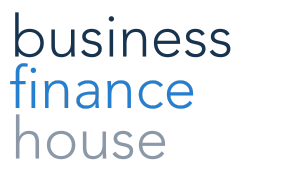Managing cash flow is crucial for day-to-day business operations. However, sometimes you may need an extra cash influx to cover expenses or seize new opportunities. This is where business loans can help. In this guide, we’ll compare cash flow loans vs. traditional business loans, highlighting their differences and helping you make the right decision for your business.
What Are Cash Flow Loans?
These loans are a type of short-term financing designed to help businesses with irregular or seasonal cash flow. They are typically unsecured, meaning you don’t have to put up collateral. They focus on your business’s cash flow rather than assets, making them a great option if you need funds quickly and don’t have the collateral to back a traditional loan. Typically, they are smaller in amount and have shorter repayment terms compared to traditional loans.
What Are Traditional Business Loans?
Traditional loans are the more conventional route for securing financing. These loans can be used for a wide range of business needs, from expanding operations to purchasing equipment. They typically require collateral, and the approval process can take longer.
These loans are offered by banks and other financial institutions, and the terms are generally more rigid than cash flow loans. These loans can be repaid over a longer period, often several years, and the amounts borrowed tend to be larger than cash flow loans.
Comparative Analysis: Cash Flow Loans vs. Traditional Business Loans
-
Collateral Requirements
One of the biggest differences between these two types of loans is the need for collateral. Cash flow loans are usually unsecured, meaning you don’t have to risk any of your business assets. This makes them an appealing option if you don’t want to tie up valuable property or equipment as security.
On the other hand, traditional business loans almost always require collateral. If you can’t repay the loan, the lender can seize the collateral to recover their funds. This can be a downside if you don’t have assets to offer. -
Approval Process
The approval process for cash flow loans is generally quicker than traditional business loans. Since they’re unsecured and based on cash flow, lenders typically make decisions faster. This speed can be a lifesaver if your business faces an urgent need for funds.
In contrast, approval for traditional business loans is longer and more thorough. Lenders will want to assess your business’s credit history, financial statements, and sometimes even your personal credit score. This can take weeks, so if you need fast access to funds, traditional business loans might not be the best option.
-
Repayment Terms and Flexibility
Cash flow loans tend to have shorter repayment terms, usually ranging from a few months to a year. While this might seem like a downside because of the quick turnaround, it can be a blessing for businesses that need quick cash and can repay the loan in a short period.
Traditional business loans, however, come with longer repayment terms, often several years. While this gives you more time to pay back the loan, it can also mean that you’ll pay more in interest over the life of the loan. Additionally, traditional loans are less flexible when it comes to adjusting repayment schedules if your business faces unexpected challenges. -
Interest Rates and Fees
Cash flow loans typically have higher interest rates compared to traditional business loans. Since they’re unsecured and involve a quicker, more streamlined approval process, lenders charge higher rates to mitigate the increased risk. You might also face additional fees, such as origination or early repayment fees.
Traditional business loans, with their longer repayment terms and collateral requirements, usually have lower interest rates. However, you’ll still need to be mindful of any fees, which can vary based on the lender and loan amount.
When to Choose Cash Flow Loans
These loans are ideal when your business experiences seasonal changes or fluctuating revenue. If you need fast access to cash and don’t have assets to offer as collateral, a cash flow loan can be a good option. They’re also a great choice if you need to cover short-term expenses, like payroll or inventory, until your cash flow improves.
When to Opt for Traditional Business Loans
If you need a larger sum of money for long-term investments, such as equipment, property, or expansion, traditional business loans may be the better choice. These loans typically offer lower interest rates and longer repayment terms, making them ideal for businesses that can afford to wait for funding and have valuable assets to secure the loan.
Making the Right Choice: Key Considerations
When deciding between cash flow loans vs. traditional business loans, consider the following:
- Urgency: If you need funds quickly, cash flow loans are typically the faster option.
- Loan Amount: Cash flow loans are generally smaller, while traditional business loans can provide larger sums.
- Collateral: If you have assets to offer, traditional loans might be more appealing with their lower interest rates.
- Repayment Capacity: Consider whether you can handle the short-term repayment schedule of a cash flow loan or if a longer repayment term would suit your business better.
Both types of loans have their pros and cons, so choosing the right one depends on your specific business needs.
Choosing business loans or cash flow loans comes down to your business’s unique financial situation. Cash flow loans are perfect for short-term cash needs and quick access to funds, while traditional loans offer larger sums and longer repayment terms for more significant investments.
Need help navigating your business financing options? Contact Business Finance House today for expert advice on finding the right loan for your needs!





